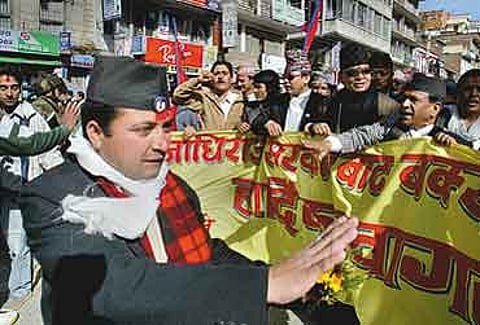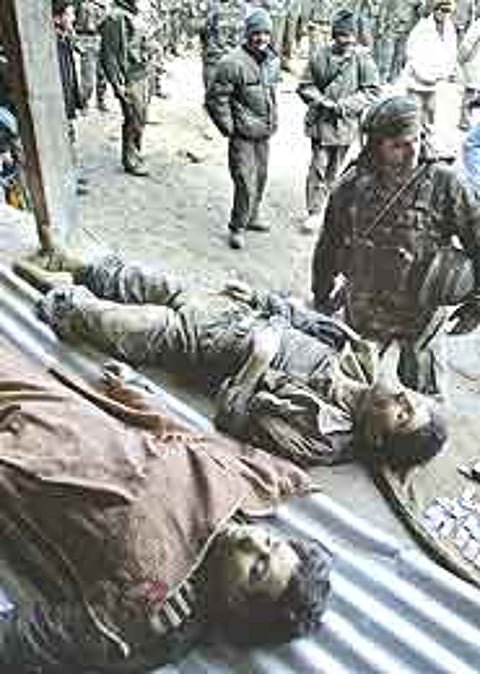With Neighbours Like These
Nepal is in turmoil. Bangladesh is mired in violent political feuds. Pakistan is aloof. What are India's options in this scenario?

But this assumption poses a host of challenges. Do we play the king's game or demand restoration of democracy? The sheer complexity of the situation is spelt out by a diplomatic source thus: "How do we make it pinch for the monarch without making it bite for the people of Nepal; how do we protect our long-term interests without endorsing his position; how do we avoid strengthening his hand without not allowing Maoists more space; how do we reduce his space without conceding space to other countries; how do we press him without allowing him to whip up anti-India sentiments?"
Implicit in this formulation is India's decision to stay engaged in Nepal. The core of the engagement consists of India sending a tough message to the monarch that his current strategy of direct governance has no chance of success as long as the Maoists stay out of the political dialogue—and democracy remains derailed. The moot question is: can New Delhi persuade the king to follow its prescription?
New Delhi feels it has several leverages with the king. For instance, arms supplies to Nepal will be put on hold till the time the king begins to retrace some of the precipitous steps he undertook last week. Also, major bilateral meetings will not take place, though those technical in nature and involving junior officials will continue. Such measures are expected to mount pressure on the king and, if needed, New Delhi could ratchet it up further until he steps back.
New Delhi is willing to provide the king a face-saver, believing a complete reversal of his last week's decision would only undermine him in the eyes of Nepalis.This middle path would involve the king providing a new political dispensation of a broader nature. There are signs the king may be headed in that direction: on February 10, he released some of the political leaders who had been incarcerated.
Will India engage the Maoists? For the moment, no. Yet, in any eventual dealing with the Maoists, New Delhi will apply the principle it adopts in engaging insurgents at home: fight you may but keep the doors for negotiations open. Already, the Maoists in their last round of talks with the Nepali government expressed a willingness to accept monarchy in a form determined by the people.
As India engages Nepal, it's coordinating its strategy with the US, the UK and, more importantly, China. Diplomats, however, say the China card has been overstated, pointing out that its attitude and the region's geography precludes the possibility of Beijing substituting India in a hurry. For one, the main population centres of China are as far from Nepal as Japan is. Second, the only road connection between China and Nepal is cut off for three-four months a year. In fact, most Chinese goods to Nepal come in through Calcutta; China-Nepal trade is about 5 per cent of Nepal's total trade; India-Nepal trade constitutes 62 per cent. And though Beijing provides significant economic assistance to Nepal, it hasn't agreed to Kathmandu's request for a Free Trade Agreement.
Diplomats point out that during India's 1989-90 blockade of Nepal, China did not bail out Kathmandu. Not only is India-China relations better than what they were in those days, government sources say China will be conscious that any excessive engagement in Nepal might draw in the US as well. Therefore, China would prefer India to solve Nepal's mess, rather than any other country. In an unprecedented step, New Delhi took Beijing into confidence on the contents of India's statement on Nepal, sharing its assessment of the situation there. The assessment asserts that the turmoil in Nepal is not a welcome development for either China or India. In return, Beijing has assured New Delhi that their objective in Nepal was common.

Tags